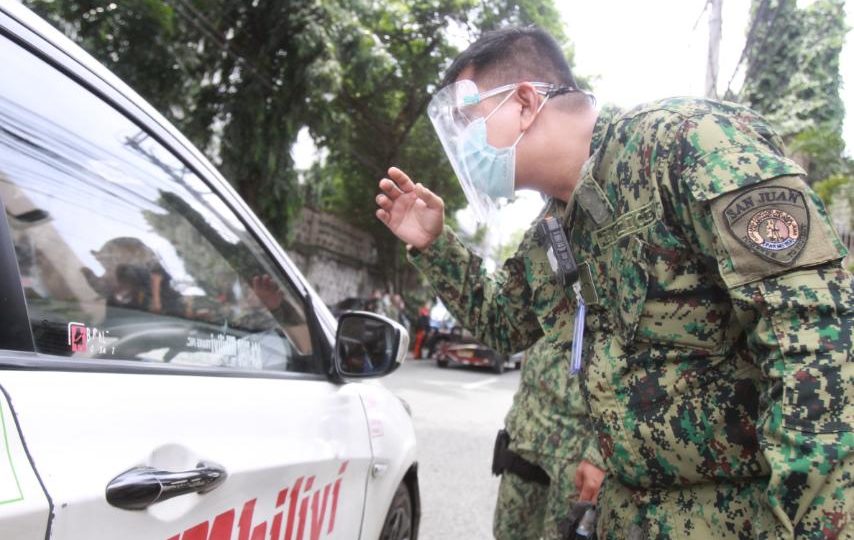Smile, you’re finally on candid camera.
The Philippine National Police (PNP) announced today, August 9, that it had deployed some of the 2,600 “recently procured” body-worn cameras among officers manning ECQ checkpoints around Metro Manila. PNP Chief Police General Guillermo Eleazar was there at the command center at Camp Crame alongside technical experts looking at the live feeds from the quarantine control points sent by the bodycams.
Of course, “recent” is a subjective term, as it’s taken three years and the terms of several police chiefs to deploy this first batch of just 2,600 bodycams out of 37,000 the PNP had been given a budget for.
Body-worn cameras were first mentioned in 2017, when PNP spokesman Dionardo Carlos announced that the PNP wanted to ask Congress for an additional budget allocation for their purchase, as a response to public outrcry about extra-judicial killings that had allegedly begun under the watch of then PNP Chief Ronald “Bato” Dela Rosa.
Congress approved P334 million for this purchase in 2018, but the PNP only began bidding from suppliers in 2019. This was further delayed when three police officers in charge of acquisitions were sacked for allegedly trying to extort P5 million from a bidder.
By May 2021, renewed calls to deploy the bodycams prompted legislators to raise the issue with the PNP once more, with Senator Grace Poe releasing a statement calling on Eleazar to “not be the fourth General [sic] to let this opportunity pass.” Since 2017, leadership of the PNP has passed from Dela Rosa to Police Generals Oscar Albayalde, Archie Gamboa, Camilo Cascolan, and Debold Sinas, before Eleazar took over the role.
Read: PNP Chief Eleazar is the latest government official to protest international rankings (Video clip)
The Supreme Court released the rules governing the use of bodycams in July this year, mandating their use when serving warrants of arrest, search, or seizure—a rule that took effect on August 1. Eleazar said in a statement, however, that the initial batch of less than 3,000 cameras were not sufficient, but that, “in the spirit of transparency and accountability, I trust that our commanders will find ways to comply with the Supreme Court’s guidelines.”
The bodycams issued to police at ECQ checkpoints were part of this initial batch. “Our personnel on the ground have been dealing with a large number of people on a daily basis since Day One of the ECQ on August 6. These body-worn cameras will serve as the constant reminder for them to be courteous at all times and at the same time, their protection against claims and allegations of abuses,” said Eleazar in a statement.
Eleazar also said that the videos taken by the bodycams will also help in monitoring traffic in the area and allow the police to make adjustments. “Sa pamamagitan ng mga real-time videos na nakukuha natin sa iba’t-ibang borders ng Metro Manila kabilang ang traffic situations sa mga QCPs, natutulungan ang mga commanders para sa anumang security adjustments at mabilis din itong naipapaabot sa ating mga personnel sa baba for immediate implementation,” said Eleazar.




